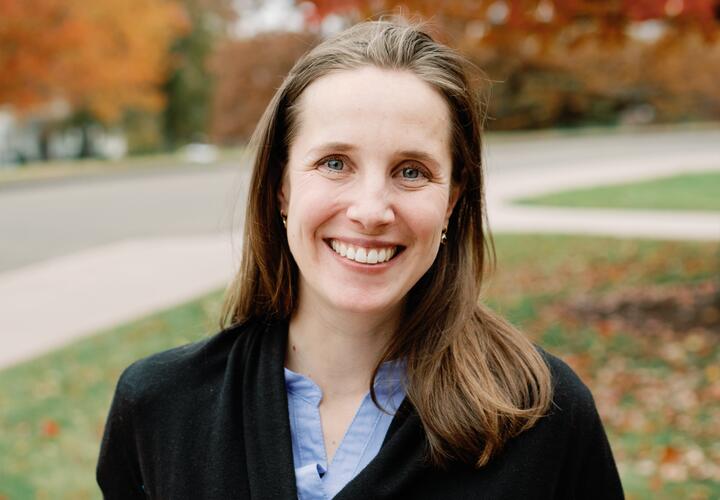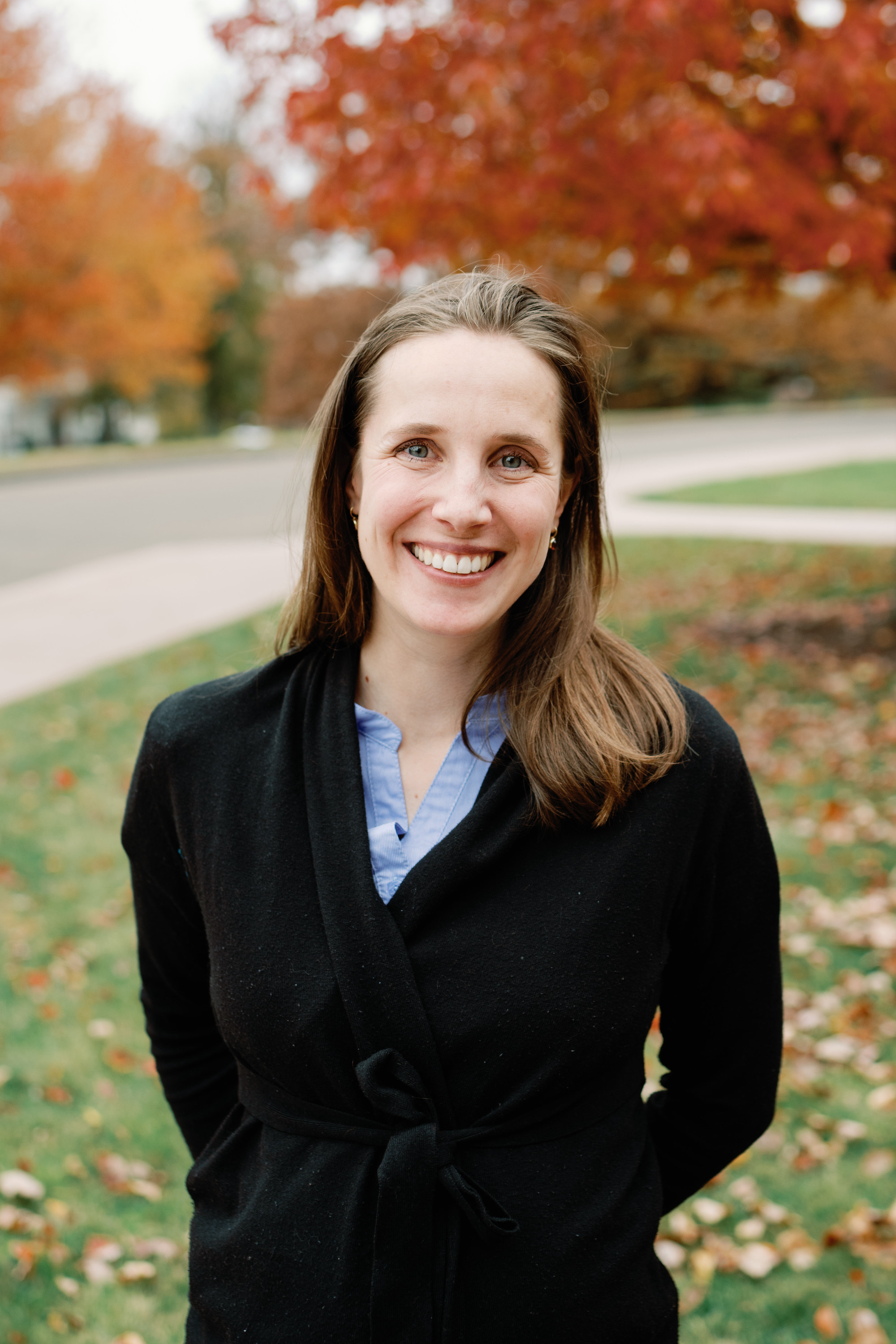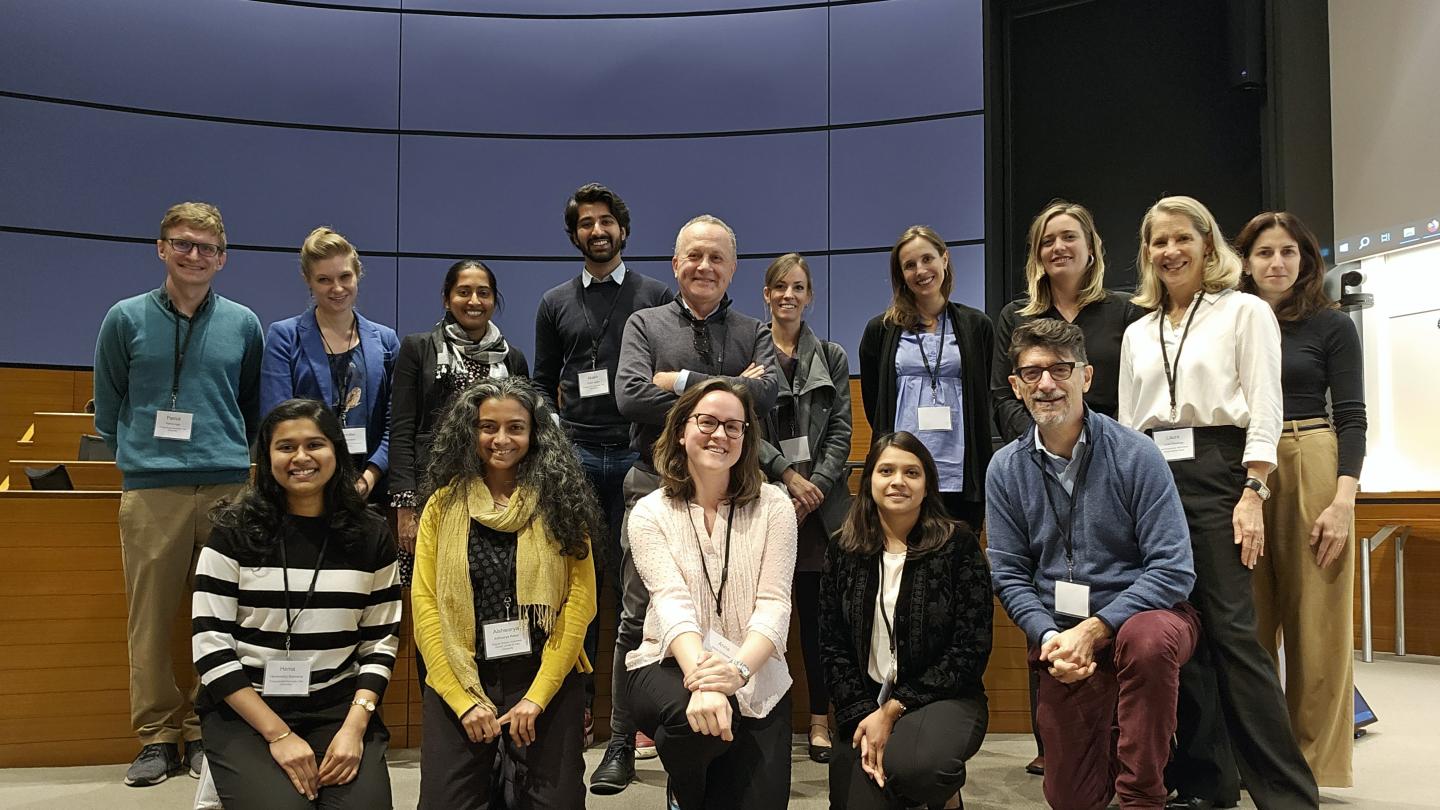Maria Kogelnik describes her research on gender differences in persisting at challenging career paths
The EGC Postdoctoral Associate has measured differences in how men and women form beliefs about their future performance in response to feedback. Can this explain workforce gender gaps?

by Iris Zhao.
Despite progress in gender equality, women in many professions still experience barriers that prevent them from attaining decision-making roles in organizations: the higher up in the organizational hierarchy, the lower the proportion of women filling roles. This phenomenon is typically attributed to differences in how men and women approach competition and take chances in the workplace.
Recent research by Maria Kogelnik offers a new explanation: the gender gap in persistence, which she defines as “the decision to continue on a career path and keep doing (or trying to do) something even when it is challenging.”
Using a controlled experiment, Kogelnik found that men are ten percentage points more likely to continue engaging in difficult tasks when exposed to performance feedback than women who did equally
 Julia Luckett for EGC
Julia Luckett for EGC
well and received identical feedback. She concluded that men and women may differ in how they interpret critiques and form beliefs about their future performance, which could lead to divergence in persistence.
In the fall of 2023, Kogelnik joined the Economic Growth Center as a Postdoctoral Affiliate, where she continues to explore similar topics and contributes to the Gender and Growth Gaps project, which she describes as “a group of economists who team up to better understand gender disparities, especially in developing countries, where they are prevalent.” In October, she co-organized a workshop with the World Bank on gender norms and women's economic empowerment.
From development to experimental economics
Kogelnik was born and raised in Austria and visited Ghana as a teenager while pursuing her apprenticeship in metalworking. Reading economist Dambisa Moyo’s book Dead Aid during her trip inspired her to explore the nuances of economic development.
“I went to Ghana naively thinking that we could make the world a better place by giving free things to lower-income populations,” Kogelnik said in an interview with EGC. “But Moyo makes the case that if you go to developing countries and give people things for free, this might make them worse off because it undermines the economy and people’s ability to work.”
After completing her apprenticeship and attaining masters degrees in economics from Leopold-Franzens University of Innsbruck and the University of British Columbia, Kogelnik went on to pursue a Ph.D. in economics at the University of California, Santa Barbara. There, she encountered experimental economics: a branch of economics that uses experiments to study behavior and test theories in a controlled environment.
“What I really like about this methodology is that you can be super creative,” Kogelnik said. “You have maximum control over the design of your experiments, and may shed light on interesting dynamics and behavioral mechanisms.”
Economics often models decisions as functions of a person’s preferences and financial constraints – two widely studied factors – as well as their beliefs, for which the evidence is less comprehensive. While many studies have investigated beliefs about a subject’s past or current state, far less research examines how people form expectations and beliefs about the future.
Kogelnik is interested in what people think is true about the world, how they arrive at those beliefs, and how these beliefs influence their decisions. She points out that one crucial factor in belief formation is ego-relevance: people tend to think of the world in ways that present themselves in a positive light, such as adopting beliefs that enhance their self-esteem or the prominence of groups they identify with.
From casual conversation to controlled experiment
The idea of a project on the gender differences in persistence originated in a conversation between Kogelnik and a colleague who had two children, a boy and a girl. Her colleague said that while his son was always confident about his soccer career despite various crushing defeats, his daughter was extremely defeated by a single low grade on her academic transcript. Kogelnik wondered if such disparities in the interpretations of feedback – and thereby decisions of whether one should continue with a task or mission – had broader implications.
To test this hypothesis, Kogelnik designed a randomized experiment in which male and female participants were asked to perform a challenging task: an IQ test. All participants were exposed to ego-relevant feedback on their performance that was either positive or negative, and only high performance was rewarded. After receiving feedback, subjects could choose to either continue in a similar setting or switch to an easier test with no feedback.
The results showed that men were more likely to continue with the more difficult task, even when compared to women who performed equally well and received the same feedback. Kogelnik offers two mechanisms to explain this finding: first, that men are more confident about their future performance than women, who are equally confident about their past performance; and second, that men tend to seek feedback more than women. The disparity in men and women’s likelihood to continue on a career path in response to performance feedback, despite having performed equally well, “could help explain why the share of women tends to decrease with position seniority in many stratified environments such as corporate management, academia, and politics,” Kogelnik noted.
For Kogelnik, the most interesting aspect of her findings ties back to belief formation. If men and women interpret the past differently and form different beliefs about the future, that could impact how they make decisions about the future.
“As a society, we might be interested in having the ‘best’ people persist in certain careers,” she said.
“But if certain people shy away from persisting because they think that a previous failure is very indicative of the future, then this could be suboptimal. One issue with dropping out early is that you never learn that you might have improved over time, and that initial failure was perhaps just an outlier.”
Synergies at EGC and beyond
At EGC, Kogelnik works closely with the Gender and Growth Gaps Project, making a unique contribution to the team with her strong interest and expertise in understanding the behavioral mechanisms that could be driving gender disparities in lower-income settings. In October 2022, Kogelnik helped host a workshop with the World Bank on how social norms impact gender inequality and development. The workshop enabled teams at EGC and the World Bank to share their recent works on related topics and facilitated synergies for doing joint projects.

In the future, Kogelnik plans continue exploring novel behavioral mechanisms that may affect gender disparities in economic outcomes. “Together with some wonderful coauthors at Yale and EGC, I have been working on a number of new and exciting projects,” she explained. “For example, using lab-in-the-field experiments in rural India, we aim at identifying preferences for power – for example, the desire to determine others' outcomes or to constrain their choices. Do such preferences vary by gender, and how do these relate to measurements of perceived social norms and female labor participation?”
“Maria’s expertise, drive, and determination are making a big difference in the way we approach measurement challenges we face when studying gender – and social norms more generally,” said Orazio Attanasio, Cowles Professor of Economics and a member of the Gender Growth Gap Project. “She puts to good use her expertise in experimental economics and thorough knowledge of the literature to come forward with new insights and original ideas on how to approach the measurement of gender norms. While her experience so far has mainly been in the lab, she now brings expertise to the field, in India, and we may soon expand ongoing research projects to Tanzania.”